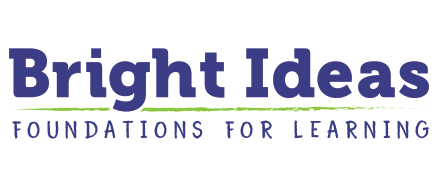right Ideas has a curriculum which is aligned with the expectations defined by the Rhode Island Early Learning and Development Standards. This combined with our STEM program offers a challenging, and enriching program for all our children. Our teachers will also introduce Spanish on an introductory level and may on occasion practice yoga, sign language and more.
Our daily activities and instruction are intended to address each of the domains outlined in the RIELDS. Below are the domains and a brief description from the RI Dept of Education. A detailed breakdown of expectations and benchmarks for each developmental age can be found here.
- Physical Health & Motor Development
- Social and Emotional Development
- Language Development
- Literacy
- Cognitive Development
- Mathematics
- Science
- Social Studies
- Creative Arts
Curriculum
1.) Physical Health and Motor Development
The emphasis in this domain is on physical health and motor development as an integral part of children’s overall well-being. The components within this domain address health and safety practices, gross motor development, and fine motor development.
2.) Social and Emotional Development
Healthy social and emotional development depends on consistent, positive interactions with educators and other familiar adults who appreciate each child’s individual temperament. This appreciation is central to promoting positive self-esteem, confidence, and trust in relationships. The components within this domain address children’s relationships with others—adults and other children—their sense of personal identity and self-confidence, and their ability to regulate their emotions and behavior.
3.) Language Development
There is a direct correlation between a child’s language skills and their academic and social development. It is therefore important to foster each childs’ development in receptive language skills, expressive skills and pragmatic capability.
4.) Literacy
Development in the domain of literacy serves as a foundation for reading and writing acquisition. The development of early literacy skills is critically important for children’s future academic and personal success. The components within this domain address phonological awareness, alphabet knowledge, print awareness, text comprehension and interest, and emergent writing.
5.) Cognitive Development
Research in child development has highlighted specific aspects of cognitive development that are particularly relevant for success in school and beyond. These aspects fall under a set of cognitive skills called executive function and consist of a child’s working memory, attention and inhibitory control, and cognitive flexibility. The components in this domain address logic and reasoning skills, memory and working memory, attention and inhibitory control, and cognitive flexibility.
6.) Mathematics
Knowledge of basic math concepts and the skill to use math operations to solve problems are fundamental aspects of school readiness and are predictive of later success in school and in life. The components within this domain address number sense and quantity; number relationships and operations; classification and patterning; measurement, comparison, and ordering; and geometry and spatial sense.
7.) Science
Making predictions, solving problems and using observation are skills that are important aspects of school readiness as they provide a process for children to ask and answer their own questions. The components within this domain address a child’s ability to use scientific methods—observing, planning for investigations, collecting and analyzing data, and communicating information—as well as indicators of a child’s content knowledge of the natural and physical world.
8.) Social Studies
In addition to helping children develop an understanding of time (past, present, and future) and place (geography), these skills are important because they also help children place themselves within a broader context of the world around them and to think beyond the walls of their home and early childhood classroom. The components within this domain address children’s understanding of self, family, and community as well as basic geography and a sense of past, present, and future.
9.) Creative Arts
Music, movement, drama, and visual arts stimulate children to use words, manipulate tools and media, and solve problems in ways that simultaneously convey meaning and are aesthetically pleasing. As such, participation in the creative arts is an excellent way for young children to learn and use creative skills in other domains. The component within this domain addresses a child’s willingness to experiment with and participate in the creative arts.








